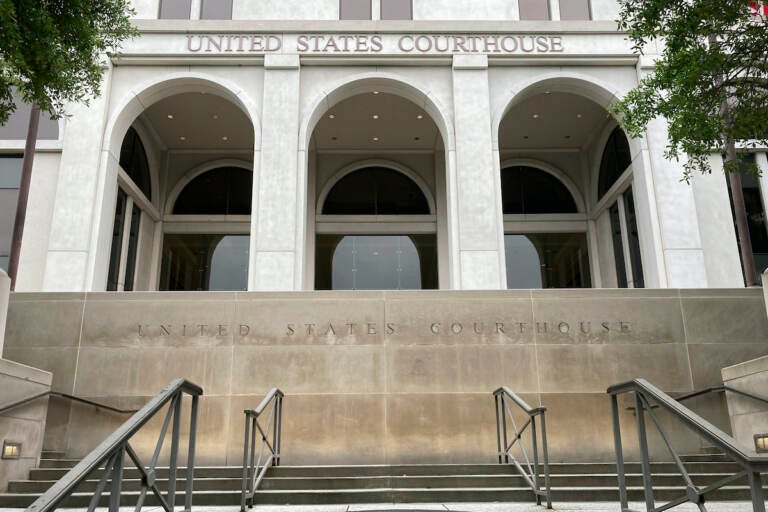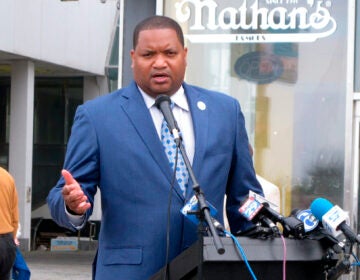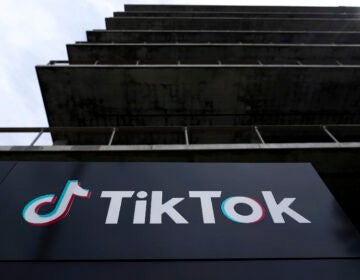U.S. judge blocks Florida ban on trans minor care in narrow ruling, says ‘gender identity is real’
Judge Robert Hinkle has temporarily blocked portions of a new Florida law that bans transgender minors from receiving puberty blockers.

U.S. District Court building is shown, Friday, April 30, 2021, in Tallahassee, Fla. (AP Photo/Wilfredo Lee)
Saying gender identity is real, a federal judge temporarily blocked portions of a new Florida law that bans transgender minors from receiving puberty blockers, ruling Tuesday that the state has no rational basis for denying patients treatment.
Judge Robert Hinkle issued a preliminary injunction, saying three transgender children can continue receiving treatment. The lawsuit challenges the law Republican Gov. Ron DeSantis signed the same week he announced a run for president.
“The elephant in the room should be noted at the outset. Gender identity is real. The record makes this clear,” Hinkle said, adding that even a witness for the state agreed.
“Despite the defense admissions, there are those who believe that cisgender individuals properly adhere to their natal sex and that transgender individuals have inappropriately chosen a contrary gender identity, male or female, just as one might choose whether to read Shakespeare or Grisham,” Hinkle continued.
The ruling was narrowly focused on the three children whose parents brought the suit.
Attention on the new law has focused on language involving minors, and Hinkle’s ruling focuses on the use of GnRH agonists, known as puberty blockers, and cross-sex hormones. The lawsuit doesn’t address other language that makes it difficult to near impossible for adults to receive or continue gender-affirming care.
Hinkle said people who mistakenly believe gender identity is a choice also “tend to disapprove all things transgender and so oppose medical care that supports a person’s transgender existence.”
Banning treatment for minors ignores risks patients might face, Hinkle said.
“There are risks attendant to not using these treatments, including the risk — in some instances, the near certainty — of anxiety and depression and even suicidal ideation. The challenged statute ignores the benefits that many patients realize from these treatments and the substantial risk posed by foregoing the treatments,” Hinkle said.
He also noted that hormone treatments and puberty blockers are often used to treat non-transgender children for other conditions, so the law law makes their use legal for some, but not for others.
“The plaintiffs’ adolescent children will suffer irreparable harm — the unwanted and irreversible onset and progression of puberty in their natal sex — if they do not promptly begin treatment with GnRH agonists. The treatment will affect the patients themselves, nobody else, and will cause the defendants no harm,” Hinkle said.
The governor’s office didn’t immediately reply to an email seeking comment.
WHYY is your source for fact-based, in-depth journalism and information. As a nonprofit organization, we rely on financial support from readers like you. Please give today.






